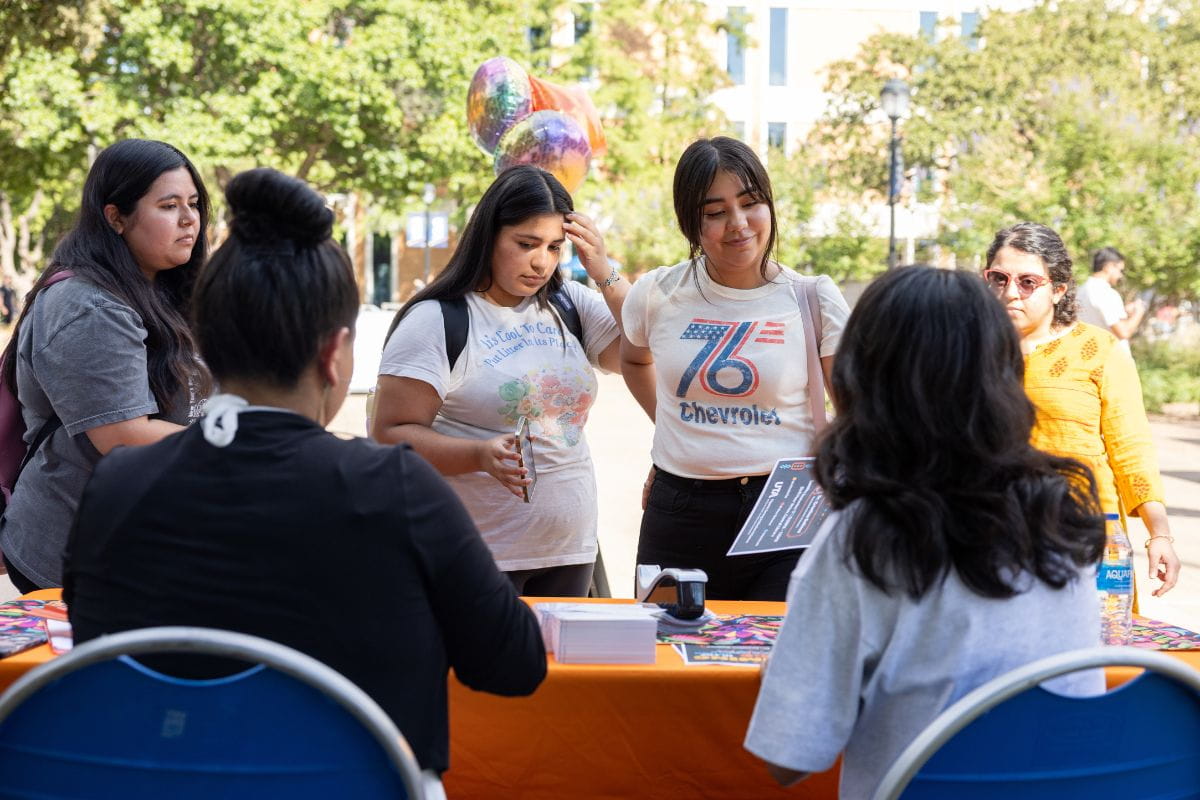The Danish Ministry of Foreign Affairs’ recent Africa-focused strategy document, Africa’s Century, which calls for more African students in Denmark, has been hailed by some newspapers and online video platforms as a turning point in Denmark’s current restrictive immigration policies and attitudes towards international student numbers.
The news reports and videos have fuelled speculation as to whether the new development might contribute to the lifting of Denmark’s parliamentary embargo on increasing international student numbers, as reported previously by University World News.
Masters students
The debate on the new strategy conicides with the arrival in Denmark in August of 17 new masters students from Africa welcomed by Danida (Denmark’s international development agency) Fellowship Centre with 13 more expected in February 2025 in an initiative aimed at building stronger ties and equal partnerships with the countries in Africa, and promoting sustainable development across Africa.
Last year, Danida sponsored a total of 28 masters students in the same academic fields – and more students are expected in the years ahead. An amount of DKK20 million (US$2.97 million) has been allocated to the Danida project.
“The new masters students are all young professionals. They are partners in Denmark’s strategic sector cooperation programmes in Egypt, Ethiopia, Ghana, Kenya, Morocco, Nigeria and South Africa, and part of a shared commitment to address global challenges,” a statement from the Danida Fellowship Centre says.
“In Denmark, they will pursue advanced studies in fields critical to global sustainability, including sustainable and renewable energy, urban planning, climate change and environmental engineering, and many more at the Technical University of Denmark, the University of Copenhagen, Roskilde University, Aalborg University and the University of Southern Denmark,” Danida reported,
A premise of equality
The newspaper Politiken accompanied Foreign Affairs Minister and former prime minister Lars Løkke Rasmussen on a trip to Ghana in August.
“This is about protecting key Danish interests,” he is quoted as saying. According to Rasmussen, Europe is shrinking – in terms of population, but also in terms of its relative share of the global economy.
Since becoming minister of foreign affairs Løkke Rasmussen has worked to open up collaborative links with Africa, toning down development collaboration and underlining equality and partnerships.
It is not yet clear how many African students the Danish government wants to bring into the country or what the efforts will cost. The Danish People’s Party, the Denmark Democrats and The Alternative party – all of which are anti-immigration – are watching the issue closely.
To Rasmussen, the new measures are not about “altruism or charity”. He told Politiken: “Of course we should not take on the task of educating millions of young Africans, because there is no capacity for that.”
However, at a joint press conference with Minister of Development Cooperation and Global Policies Dan Jørgensen on 26 August 26 Rasmussen said that in 2050 every fourth inhabitant in the world would come from Africa and that this is one reason that the Danish presence in Africa needs to be upgraded.
Geopolitical issues
The foreign minister said that a more equal partnership with the 54 countries in Africa and Denmark would be devised and would not be related only to development aid.
In a press release marking the conference, Africa’s growing geopolitical relevance and importance in international politics was emphasised.
“One of this century’s most important foreign policy questions will be whether the African countries will orient themselves more towards the east or the west. We have a clear interest in the African countries looking towards us in Europe when they have to chart the course for their future.
“We must show that we can offer an attractive alternative to the increasing Chinese and Russian influence on the continent.
“We must do this, among other things, by investing more in Africa and doing more business with African companies, just as we must cultivate mutual understanding and, among other things, work to ensure that more young Africans can come to study in Denmark,” said Rasmussen.
The ministers also announced that Denmark will open up new embassies in Senegal, Tunisia and Rwanda but close those in Mali and Burkina Faso where military coups had resulted in a reorientation towards Russia.
The foreign minister also said there would be an increase in diplomatic staff at its embassies in Egypt, Kenya, South Africa, Nigeria and Ghana, while a special representative would be appointed for the African Great Lakes and Sahel region.
A new tempo for collaboration
On the same day it was reported that the Ministry of Higher Education and Research had announced it was opening a new regional innovation centre in Kenya.
Minister for Higher Education and Science Christina Egelund is reported to have said: “Africa is a continent with an enormous potential and with several of the fastest growing economies in the world. We therefore are going to have Danish collaboration with Africa at a new tempo.
“We know that Danish companies have much to offer the African markets and that Danish innovation and engagement can contribute to creating work in some of the world’s fastest growing populations. We are going to create equal partnerships that are going to benefit both Denmark and the African countries.”
According to the ministry’s fact sheet: “Exchanges must be a higher priority in order to strengthen ties between Denmark and African countries.”
While the pilot programme started in 2023 would be continued via Danida Fellowship Centre, the minister said a new DKK30 million cooperation programme for knowledge and innovation is planned to be initiated in 2025.
“The new programme will focus on increased exchanges and partnerships between Danish and African universities.
“Efforts will be made to explore how Denmark can do more so that more African students can study in Denmark and Europe, for example, through the use of EU funds allocated for educational collaboration with African countries, shorter-term visits in the form of summer school or individual courses, and or more PhD residencies,” the fact sheet stated.
Positive reception
Academics and researchers have welcomed the developments. In an opinion piece in Jyllands-posten on 10 September senior researcher Lars Engberg-Pedersen of the Danish Institute of International Studies wrote: “A new Africa strategy should as take a point of departure that we are together in the world we are living in and those crises we are confronting. Collaboration is necessary. Denmark cannot stand alone even if we often behave like we could.”
Engberg-Pedersen said Denmark had previously been good at achieving equal collaboration arrangements, notably in development assistance, but in recent years, such relationships had been deprioritised, he said.
“Unfortunately, this element is not made concrete in the strategy and here it is needed with further clarifications if this ambition is to be convincing,” he said.
He endorsed the intention of the strategy to focus on the whole of Africa instead of Sahel countries only.
He said that bringing students from Africa to Denmark would help to “create better connections between people – something we were better at 25 years ago”.
He wrote: “The geopolitical break-up has accelerated over the last ten years, and we also have other geopolitical challenges. Climate change, loss of biodiversity, pandemy, financial insecurities, war, refugees, dangerous technologies, rising energy and food prices … these are constant crises that do not disappear at the Danish borders.
“These play a decisive role for our future welfare, and they can only be addressed through international collaboration.”
However, to University World News Engberg-Pedersen added: “While confronting some of the geopolitical challenges Denmark faces, the [Africa] strategy does not constitute the necessary policy change to achieve an interdependent world.”
International students cap
Lauge Lunding Bach deputy chair (educational policy) of the National Union of Students in Denmark (DSF), told University World News the union welcomed the government’s initiative to allow more students from Africa to study in Denmark.
“As students, we benefit both academically and socially from a diverse student body. International students bring different perspectives and experiences into the classroom. With this diversity, there is a potential for a higher learning outcome for all the attending students.
“Furthermore, we can add: The Danish politicians have capped the number of international students and English language study places. We would like to see this cap lifted, in order to enhance diversity at the study programmes in Denmark,” said Lunding.
Hanne Leth Andersen, rector of Roskilde University and Chair of the Committee on Education Policy at peak body Universities Denmark, said she supports the initiative from the Danish government and the Danida Fellowship.
“We know that attracting students from emerging economies requires both free study programmes and scholarships. I hope that this will have a more permanent status and preferably a higher volume.
“We don’t have many students with an African background with us, but we are very interested in a diverse student body to enrich our international vision and expertise.
“More generally it is important to maintain an international intake when student cohorts in Denmark are declining over the coming years. This decline will have negative economic and welfare effects. It seems logical to attract more foreign students to our programmes and subsequently to our labour market./universityworldnews.com





More Stories
UN summit outcome shows higher education has work to do
Historic government shift holds promise of education reform
New EU-funded programme to support threatened academics